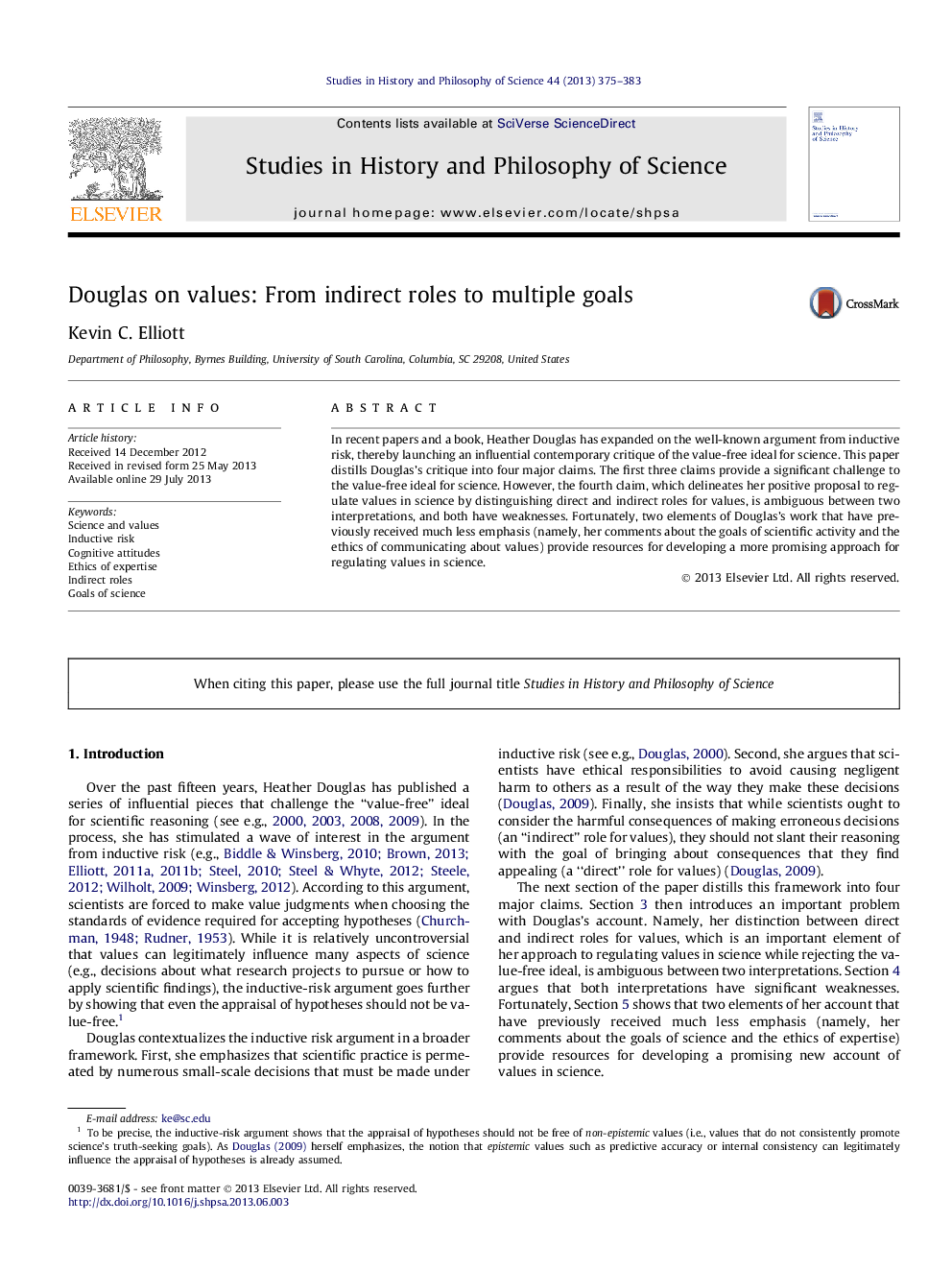| Article ID | Journal | Published Year | Pages | File Type |
|---|---|---|---|---|
| 1160458 | Studies in History and Philosophy of Science Part A | 2013 | 9 Pages |
•Heather Douglas’s influential account of values in science can be distilled into four major claims.•Douglas’s distinction between direct and indirect roles is ambiguous between two interpretations.•Both interpretations of the direct/indirect roles distinction have significant weaknesses.•Appropriate and inappropriate values can be distinguished based on the goals of science in each context.•Value influences should also be made as explicit as possible.
In recent papers and a book, Heather Douglas has expanded on the well-known argument from inductive risk, thereby launching an influential contemporary critique of the value-free ideal for science. This paper distills Douglas’s critique into four major claims. The first three claims provide a significant challenge to the value-free ideal for science. However, the fourth claim, which delineates her positive proposal to regulate values in science by distinguishing direct and indirect roles for values, is ambiguous between two interpretations, and both have weaknesses. Fortunately, two elements of Douglas’s work that have previously received much less emphasis (namely, her comments about the goals of scientific activity and the ethics of communicating about values) provide resources for developing a more promising approach for regulating values in science.
